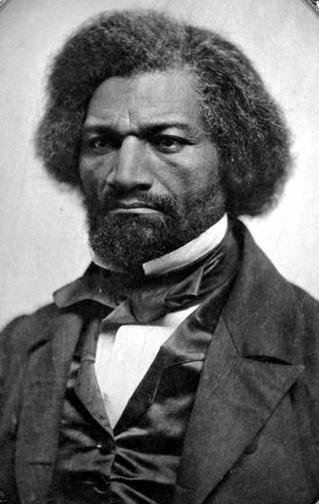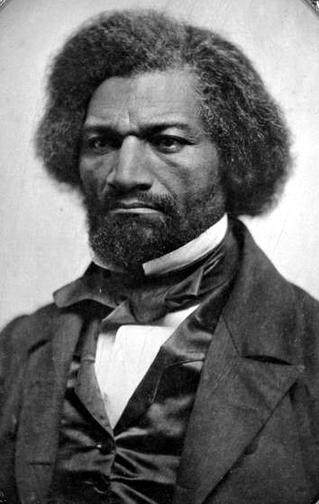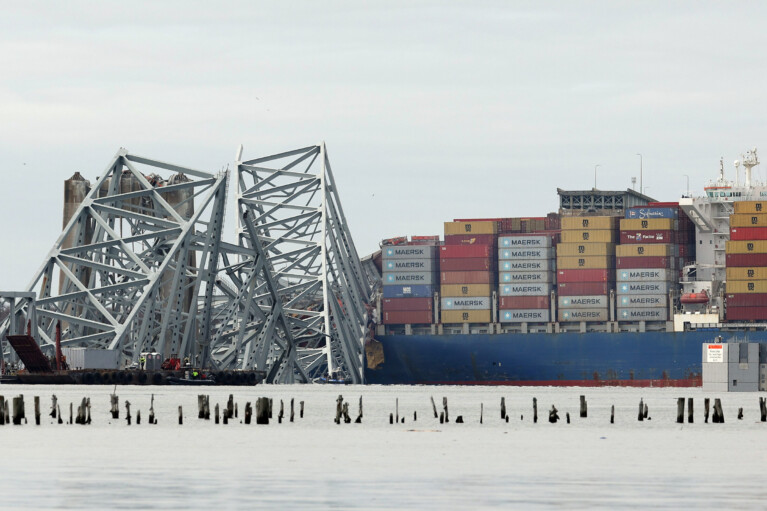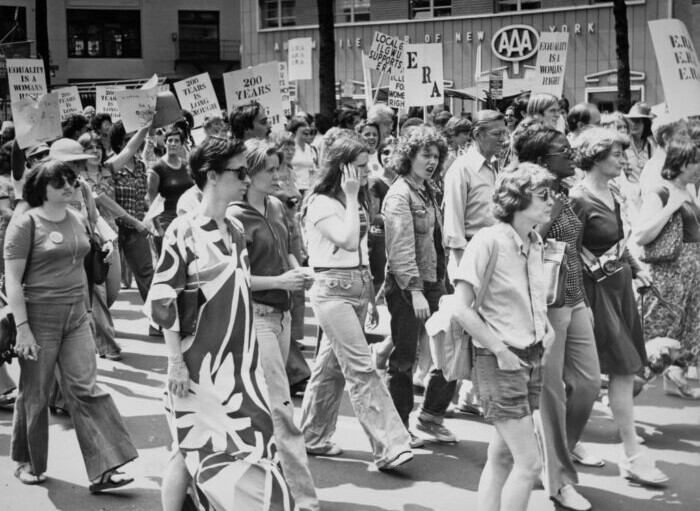Retrocession: The ‘Feasible’ Solution for D.C. Voting Rights?

The question seemed out of place for a town hall meeting that U.S. Benjamin L. Cardin (D-Md.) was holding with local officials at the Maryland Association of Counties conference in Ocean City last week. But there it was – the very first thing Cardin was asked about. Would the senator favor “retrocession” for the District of Columbia – ceding its land back to Maryland so District residents could become Marylanders and enjoy full voting rights? Cardin was taken aback, but he answered quickly. “I think it’s better for the District of Columbia to have full representation in the United States Congress, to have home rule,” he said. But the question may not have been as out-of-the-blue as it initially seemed. It was asked by a Washington, D.C., activist named David Krucoff, who drove to Ocean City just to talk to Cardin and other officials about retrocession.  Frederick Douglass While many Washington, D.C., activists and residents have been pushing for statehood for years – as have many Democrats in Congress – a relatively new group claims to have a more feasible solution to the “second-class citizenship” of city residents: the retrocession of D.C. into Maryland. Douglass County, Md., a 501(c)(4) organization, advocates creating a 24th county in Maryland – Douglass County, named after Frederick Douglass – which would only have the city of D.C. in it. “I don’t care about the Republicans and I don’t care about the Democrats. I care about enfranchisement. I care about ending the condition that we have in the District of Columbia where we…don’t have the same rights” as other Americans, said Krucoff, the group’s founder and executive director. “It’s not fair and it is a mistake, and it has to be repaired.” Frederick Douglass is a potent symbol for the effort. The abolitionist was born into slavery in Maryland, and after his long and storied career, lived his final days in D.C. – where his house is a National Historic Site. Krucoff, a long-term retrocessionist, decided to create the organization in September 2016 following a September 2014 U.S. Senate hearing on disenfranchisement of D.C. residents. Several people testified in favor of statehood, and others suggested exempting D.C. residents from paying federal taxes. But no one mentioned retrocession as a viable solution. “At that point, I got so angry that [I thought] ‘that’s it, I’m going to start my own group,’” said Krucoff, who works for a commercial real estate firm in Bethesda. The organization claims reunifying D.C. and Maryland is the only realistic way to achieve full rights and representation. A proposed constitutional amendment to give D.C. full statehood, which passed Congress in 1978, failed to be ratified by the necessary three-quarters of states by the 1985 deadline. And complete statehood for the U.S. capital has been long opposed by Republicans who currently control the executive branch and Congress. Yet Krucoff does not see much hope in pushing a constitutional amendment again, and he does not want to wait for the results of this year’s midterm elections to decide on a course of action. “Not only is [retrocession] more feasible, but it is also better,” he said. Returning the ceded area to Maryland, except the congressionally-controlled National Capital Service Area, which takes in the National Mall and surrounding areas, would provide District residents full voting rights and representation, Krucoff argues — without changing the current balance in Congress as they would be represented by Maryland representatives and senators. The nonprofit also claims that the establishment of Douglass County would also “greatly enhance the ability of D.C. residents to govern themselves,” as the local government would pass its own laws and budgets similar to nearby cities like Baltimore and Alexandria, Va. While D.C. effectively operates as a state and a city, with the creation of Douglass County, current state functions would be transferred to the state of Maryland – which would save Douglass County taxpayers billions of dollars while increasing Maryland tax rolls significantly, according to the organization.
Frederick Douglass While many Washington, D.C., activists and residents have been pushing for statehood for years – as have many Democrats in Congress – a relatively new group claims to have a more feasible solution to the “second-class citizenship” of city residents: the retrocession of D.C. into Maryland. Douglass County, Md., a 501(c)(4) organization, advocates creating a 24th county in Maryland – Douglass County, named after Frederick Douglass – which would only have the city of D.C. in it. “I don’t care about the Republicans and I don’t care about the Democrats. I care about enfranchisement. I care about ending the condition that we have in the District of Columbia where we…don’t have the same rights” as other Americans, said Krucoff, the group’s founder and executive director. “It’s not fair and it is a mistake, and it has to be repaired.” Frederick Douglass is a potent symbol for the effort. The abolitionist was born into slavery in Maryland, and after his long and storied career, lived his final days in D.C. – where his house is a National Historic Site. Krucoff, a long-term retrocessionist, decided to create the organization in September 2016 following a September 2014 U.S. Senate hearing on disenfranchisement of D.C. residents. Several people testified in favor of statehood, and others suggested exempting D.C. residents from paying federal taxes. But no one mentioned retrocession as a viable solution. “At that point, I got so angry that [I thought] ‘that’s it, I’m going to start my own group,’” said Krucoff, who works for a commercial real estate firm in Bethesda. The organization claims reunifying D.C. and Maryland is the only realistic way to achieve full rights and representation. A proposed constitutional amendment to give D.C. full statehood, which passed Congress in 1978, failed to be ratified by the necessary three-quarters of states by the 1985 deadline. And complete statehood for the U.S. capital has been long opposed by Republicans who currently control the executive branch and Congress. Yet Krucoff does not see much hope in pushing a constitutional amendment again, and he does not want to wait for the results of this year’s midterm elections to decide on a course of action. “Not only is [retrocession] more feasible, but it is also better,” he said. Returning the ceded area to Maryland, except the congressionally-controlled National Capital Service Area, which takes in the National Mall and surrounding areas, would provide District residents full voting rights and representation, Krucoff argues — without changing the current balance in Congress as they would be represented by Maryland representatives and senators. The nonprofit also claims that the establishment of Douglass County would also “greatly enhance the ability of D.C. residents to govern themselves,” as the local government would pass its own laws and budgets similar to nearby cities like Baltimore and Alexandria, Va. While D.C. effectively operates as a state and a city, with the creation of Douglass County, current state functions would be transferred to the state of Maryland – which would save Douglass County taxpayers billions of dollars while increasing Maryland tax rolls significantly, according to the organization.  David Krucoff While currently the U.S. Congress and the president have final say over legislation passed by the D.C. mayor and council, Krucoff wants D.C. to have state oversight similar to any other city. “Cities don’t operate as states. If you are a citizen of Los Angeles, you have oversight from Sacramento,” said Krucoff. “I’m not saying we should be any more special. We should just be Americans.” The group hopes to take the same path as the retrocession of Arlington in 1846, which includes a legislation passed by Congress and signed by the president, followed by a referendum to “solidify” the change, Krucoff said. However, Krucoff says he’s “not even looking at” drafting a legislation, and instead is focused on talking to politicians. “Plenty, plenty of people at think tanks, in Congress and elsewhere think that what I talk about—retrocession—specifically Douglass County, Maryland…is creative,” said Krucoff. “[They] like the idea and think it makes sense.” But Krucoff claims they aren’t bold enough to act upon it because they “are beholden to a two-party system right now.” “Some things are just so basic and make sense, that you could just go for it. Just go for it! Why do you have to be, you know, so concerned about what your caucus is doing?” Krucoff continued. He later added, “I’m looking for people who will help me shape where the wind is going to go, and that’s a real leader.” The group is working towards completing retrocession by 2030 but must get Maryland and D.C. residents and politicians on board first. Only 19 percent of D.C. residents and 28 percent of Marylanders support retrocession, according to surveys conducted in 2018 and 2016. Elinor Hart, president of Vision House, a nonprofit group that houses the D.C. Statehood Coalition, described retrocession as a “political impossibility.” “It’s introduced very often in Congress when something like voting rights comes up and…if you notice…nobody from Maryland supports it,” said Hart, adding that all but two people in the Maryland congressional delegation have signed on to the statehood bill and 86 percent of District residents voted for statehood in 2016. Statehood “is what we decided we want, so I think we should have it,” Hart said. Many key politicians also seem to be against this retrocession. D.C. Del. Eleanor Holmes Norton (D) has made D.C. statehood a legacy issue. Rep. Elijah E. Cummings (D-Md.) called retrocession a “frivolous proposal” when it was suggested by then-Rep. Jason Chaffetz (R-Utah) last year. Former Maryland Gov. Parris N. Glendening (D), a proponent of statehood, called the proposal “a little bit condescending.” The message it sends is, “we don’t know what to do with you so let’s just give you away,” Glendening told Maryland Matters. Glendening, a former longtime political science professor at the University of Maryland, suggests that the issue of voting rights for D.C. residents can be solved through compromise. “Every state admitted to the Union since the original 13 has been involved in the same type of discussions and always has reached some type of compromise,” he said. “What I think we have to do instead of trying this retrocession or other complicated procedures is simply to sit down in good faith with leaders of Congress and reach a compromise for a lot of different things that people want to pull together.” Meanwhile, Cardin said he and other members of the Maryland congressional delegation continue to “fight for human rights locally” – including pushing for D.C. voting rights. “I have used a lot of my political capital to provide services to the District,” he said.
David Krucoff While currently the U.S. Congress and the president have final say over legislation passed by the D.C. mayor and council, Krucoff wants D.C. to have state oversight similar to any other city. “Cities don’t operate as states. If you are a citizen of Los Angeles, you have oversight from Sacramento,” said Krucoff. “I’m not saying we should be any more special. We should just be Americans.” The group hopes to take the same path as the retrocession of Arlington in 1846, which includes a legislation passed by Congress and signed by the president, followed by a referendum to “solidify” the change, Krucoff said. However, Krucoff says he’s “not even looking at” drafting a legislation, and instead is focused on talking to politicians. “Plenty, plenty of people at think tanks, in Congress and elsewhere think that what I talk about—retrocession—specifically Douglass County, Maryland…is creative,” said Krucoff. “[They] like the idea and think it makes sense.” But Krucoff claims they aren’t bold enough to act upon it because they “are beholden to a two-party system right now.” “Some things are just so basic and make sense, that you could just go for it. Just go for it! Why do you have to be, you know, so concerned about what your caucus is doing?” Krucoff continued. He later added, “I’m looking for people who will help me shape where the wind is going to go, and that’s a real leader.” The group is working towards completing retrocession by 2030 but must get Maryland and D.C. residents and politicians on board first. Only 19 percent of D.C. residents and 28 percent of Marylanders support retrocession, according to surveys conducted in 2018 and 2016. Elinor Hart, president of Vision House, a nonprofit group that houses the D.C. Statehood Coalition, described retrocession as a “political impossibility.” “It’s introduced very often in Congress when something like voting rights comes up and…if you notice…nobody from Maryland supports it,” said Hart, adding that all but two people in the Maryland congressional delegation have signed on to the statehood bill and 86 percent of District residents voted for statehood in 2016. Statehood “is what we decided we want, so I think we should have it,” Hart said. Many key politicians also seem to be against this retrocession. D.C. Del. Eleanor Holmes Norton (D) has made D.C. statehood a legacy issue. Rep. Elijah E. Cummings (D-Md.) called retrocession a “frivolous proposal” when it was suggested by then-Rep. Jason Chaffetz (R-Utah) last year. Former Maryland Gov. Parris N. Glendening (D), a proponent of statehood, called the proposal “a little bit condescending.” The message it sends is, “we don’t know what to do with you so let’s just give you away,” Glendening told Maryland Matters. Glendening, a former longtime political science professor at the University of Maryland, suggests that the issue of voting rights for D.C. residents can be solved through compromise. “Every state admitted to the Union since the original 13 has been involved in the same type of discussions and always has reached some type of compromise,” he said. “What I think we have to do instead of trying this retrocession or other complicated procedures is simply to sit down in good faith with leaders of Congress and reach a compromise for a lot of different things that people want to pull together.” Meanwhile, Cardin said he and other members of the Maryland congressional delegation continue to “fight for human rights locally” – including pushing for D.C. voting rights. “I have used a lot of my political capital to provide services to the District,” he said.



 Creative Commons Attribution
Creative Commons Attribution